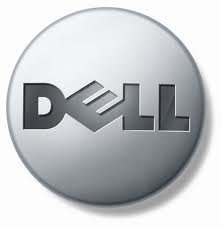The Dell Quickstart Data Warehouse Appliance 1000, announced and made available Wednesday, is aimed squarely at midsize firms as it tops out at five terabytes of user data. By bundling and preconfiguring the software to work with Dell PowerEdge servers, the vendor says it's making data warehousing easy.
"Limited IT resources and budgets have mostly prevented mid-sized organizations from building data warehouses and realizing the insights they need," said Dell's Ben Linder, executive director, data warehousing and business intelligence, in a statement. "Dell now offers the mid-market a comprehensive, robust, affordable, and simple data warehouse solution."
Data warehouse appliances are nothing new, and they've been available from data warehousing market leaders Oracle and IBM for several years. Microsoft has partnered with Dell, HP, and others suppliers to provide preconfigured hardware for Microsoft SQL Server-based data warehouse deployments.
Dell described the Quickstart Data Warehouse Appliance 1000 as going "a step beyond" typical appliances in that it includes data-integration capabilities from Dell Boomi, the software-as-a-service vendor Dell acquired in 2010. Dell said it's also providing start-up services and training with the appliance to get customers up and running, and it will follow up with quarterly health checks to ensure ongoing success.
The base price for the appliance is $69,990, including Microsoft Windows R2 SP1 Enterprise Edition, Microsoft SQL Server 2012 Data Warehouse Appliance Edition, and a one-year subscription to Dell Boomi. It also includes the required server and storage hardware to support 5 terabytes of user data and the support services mentioned above.
It's unclear just how "bundled in" Dell Boomi can be given that it's described as a "lightweight, subscription-based data integration service." Responding to email questions, a Dell spokesperson told Information Week that the subscription-based software includes a library of data connectors, visual integration tools, and a run-time execution engine.
As for query and analysis, what most people think of when the hear "BI," Dell said it recommends that those tools be run on a separate server. Even though Microsoft SQL Server 2012 is preinstalled and configured as part of the appliance, the appliance license does not include access to SQL Server Integration Services, Analysis Services, or Reporting Services.
"If customers already have SQL Server licenses on other servers, they can use those with the Quickstart Appliance," said a Dell spokesperson.
Microsoft confirms that Dell's new appliance is the first to be based on Microsoft SQL Server 2012, which was released in April. As such it's the first appliance to feature new SQL Server 2012 capabilities including the x Velocity In-memory Column Store, which is said to speed queries and optimize data compression.
Dell's push into data warehousing and business intelligence is part of a larger push into the enterprise software market, which was given a boost last week when Dell announced its $2.4 billion acquisition of Quest Software. Quest's portfolio includes BI, database-management, and Hadoop-related software that could find its way into future Dell data warehouse appliance bundles.
HP first mounted a push into business intelligence with its 2006 acquisition of the Knights bridge BI consultancy, but that initiative seemed to stall when HP's failed high-end Neoview data warehousing platform was abandoned in late 2010. In early 2011, HP acquired the Vertica database, and it subsequently introduced HP Vertica Analytic System appliances built on HP software.
HP's appliance is a much higher-end, big-data-scale offering compared to the Dell Quickstart Appliance 1000. In fact, despite all the hype about big data, the vast majority of enterprises manage less than 10 terabytes of data.
Dell is starting with the broadest base in the market, and it told Information Week that it will announce another member of the appliance family later in the year. So look for a bigger appliance and, perhaps, a deeper, more BI-capable software bundle.

